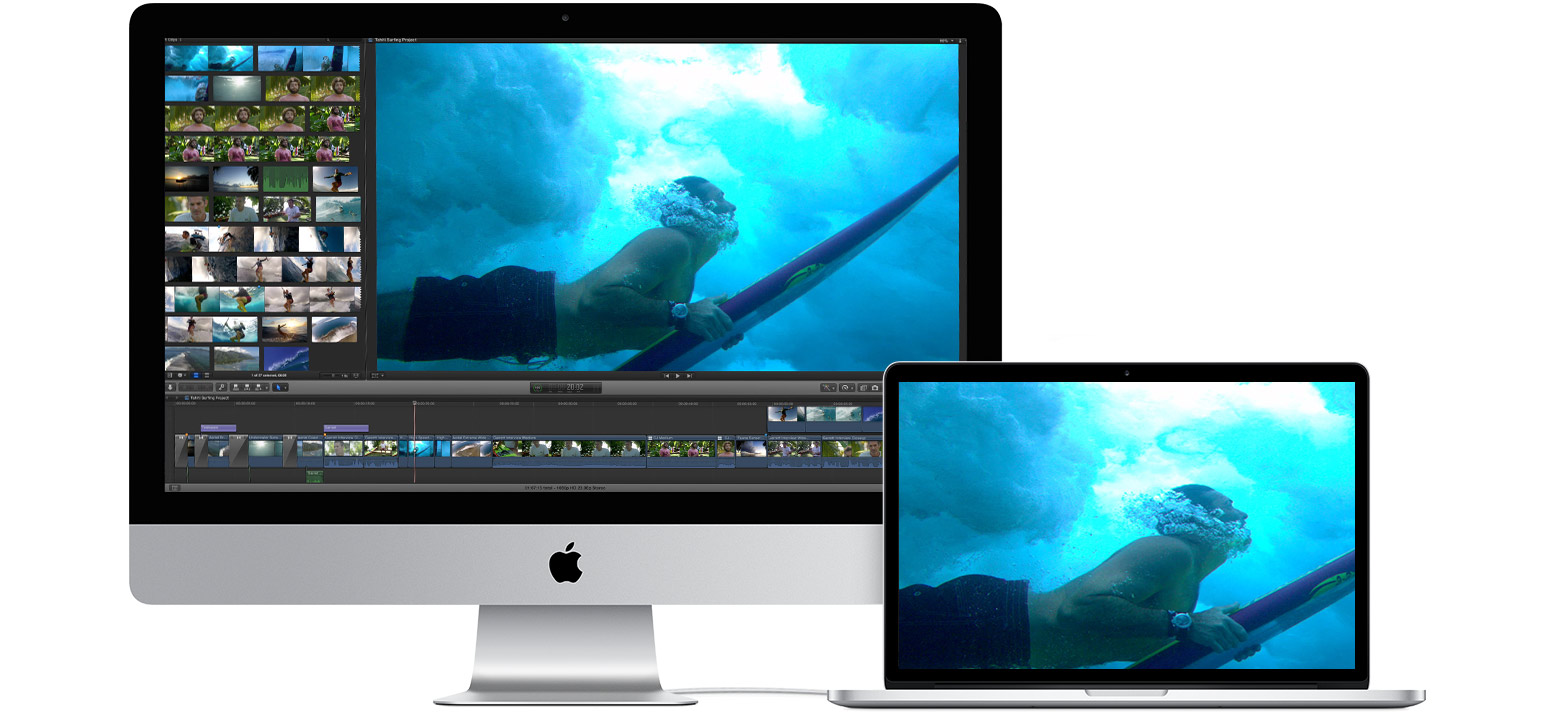Use your iMac as a display with target display mode
Target display mode is a feature available with certain older Mac models.

The following older iMac models can be used as an external display when plugged into another older Mac model.
iMac models introduced in 2011, 2012, 2013, and mid 2014
To use any of these iMac models as an external display:
The iMac used as a display must have macOS High Sierra or earlier installed.
The other Mac that you're connecting it to must have been introduced in 2019 or earlier and have macOS Catalina or earlier installed.
The cable connecting the two Mac computers must be a or cable.
24-inch and 27-inch iMac models introduced in 2009 and 2010
To use any of these iMac models as an external display:
The iMac used as a display must have macOS High Sierra or earlier installed.
The other Mac that you're connecting it to must have been introduced in 2019 or earlier and have macOS Catalina or earlier installed.
The cable connecting the two Mac computers must be a Mini cable.
How to use target display mode
Make sure that your iMac is started up and meets the system requirements above.
Make sure that the other Mac is started up and logged in to a macOS user account.
Connect the two computers using the appropriate Mini DisplayPort or Thunderbolt cable.
You can use more than one iMac as a display, if each iMac is using a Thunderbolt cable to connect directly to a Thunderbolt port on the other Mac (not the other iMac).
Press Command-F2 on the keyboard of the iMac. You should now see the desktop of the other Mac.
To exit target display mode, press Command-F2 again. Or disconnect the cable, or restart either Mac.
Apps that were open on your iMac when entering target display mode remain open in target display mode. For example, if you begin playing music on your iMac and then enter target display mode, the music doesn't pause on your iMac.
The other Mac can't use the iMac computer's built-in camera or ports. To use external devices with your other Mac, connect them directly to the other Mac, not to your iMac.
Control brightness and sound
If you want to use the built-in speakers of your iMac to play audio from the other Mac:
Choose Apple menu > System Preferences, click Sound, then click Output.
Select the iMac as the device for sound output.
You can then use the sound and media keys on the keyboard of the other Mac to adjust volume and control media playback.
To control the brightness of the iMac display while it's in target display mode, use Displays preferences on the other Mac, or the on the keyboard of the other Mac.
If target display mode doesn't work
If your iMac doesn't show the desktop of your other Mac, try these steps first:
Restart your iMac.
Restart the other Mac.
Unplug the Thunderbolt or Mini DisplayPort cable from the other Mac, then plug it back in.
Press Command-F2 on the iMac.
If that doesn't work, try these other solutions:
If you're currently logged in to the iMac that you want to use as a display, choose Apple menu > Log Out to return to the login window. Then press Command-F2 again.
Choose Apple menu > System Preferences, then click Keyboard. If ”Use F1, F2, etc. keys as standard function keys” is selected, target display mode uses Command-Fn-F2 instead of Command-F2. It might also help to use the keyboard that came with your iMac. Some third-party keyboards and older Apple keyboards don't support target display mode.
Make sure that your iMac is using macOS High Sierra 10.13.6 or earlier. You can't use target display mode with later versions of macOS, or with Boot Camp and Windows.
Learn more
Information about products not manufactured by Apple, or independent websites not controlled or tested by Apple, is provided without recommendation or endorsement. Apple assumes no responsibility with regard to the selection, performance, or use of third-party websites or products. Apple makes no representations regarding third-party website accuracy or reliability. Contact the vendor for additional information.